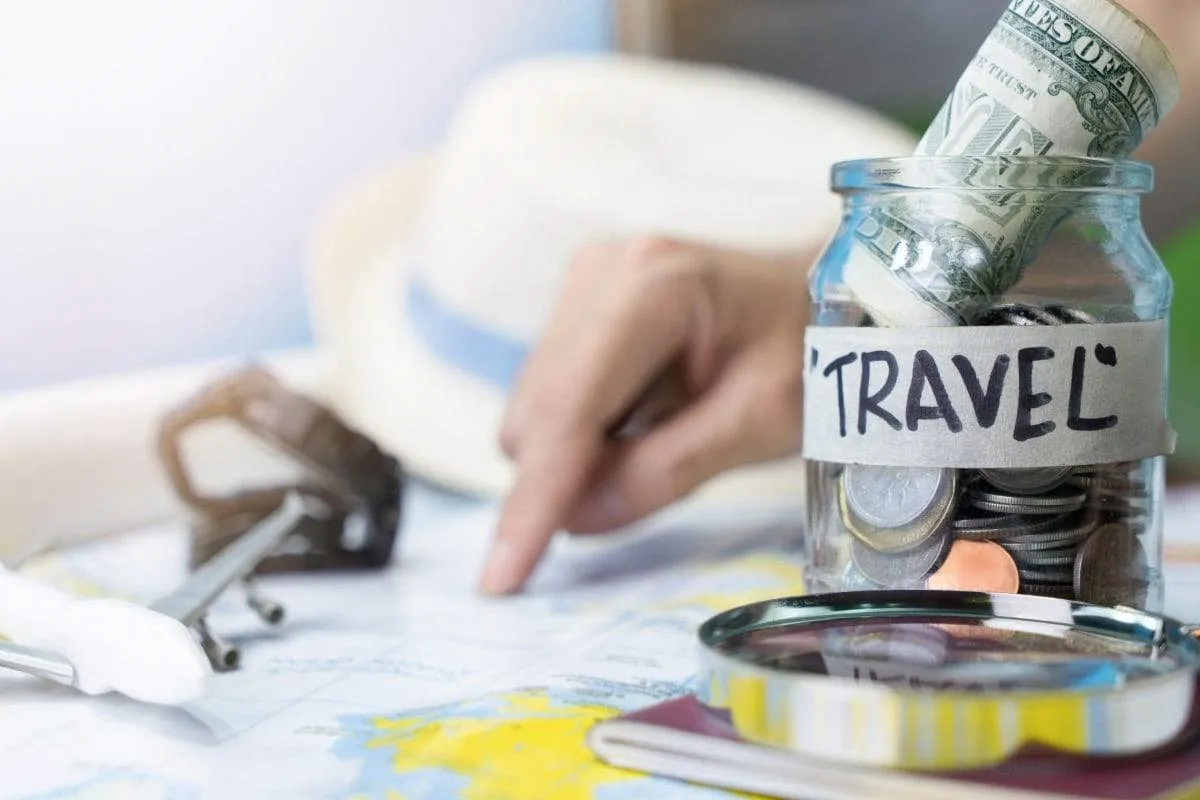Planning a trip? Learn how to maximize your travel budget with our top tips and tricks for saving money while still having an amazing experience. From budget-friendly accommodation options to insider hacks on getting the best deals, we’ve got you covered.
Setting a Travel Budget
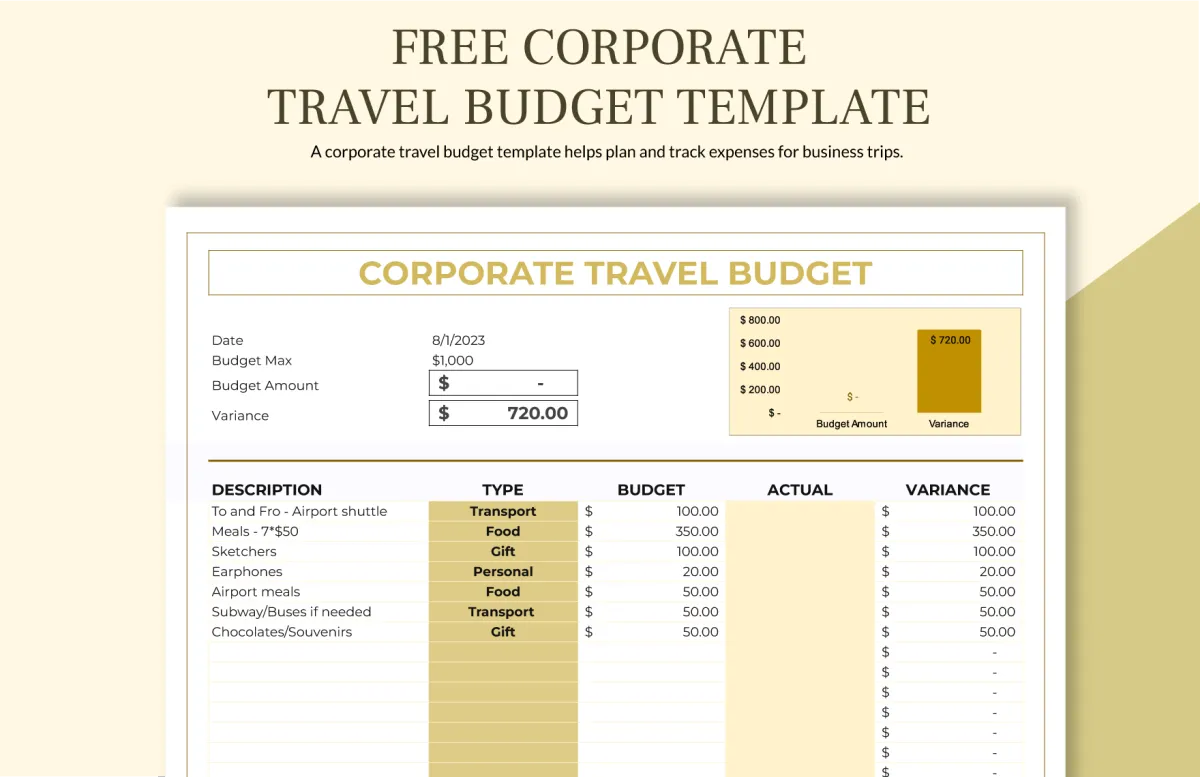
Before you even start dreaming of exotic destinations or booking flights, it’s crucial to set a realistic travel budget. This will be your financial roadmap, helping you make the most of your trip without breaking the bank.
1. Determine Your Overall Budget
Start by figuring out how much you can realistically afford to spend on your trip. Consider your income, expenses, and any savings you’ve set aside. Be honest with yourself about your financial limitations.
2. Break Down Your Expenses
Divide your budget into key expense categories:
- Transportation: Flights, trains, buses, car rentals, fuel
- Accommodation: Hotels, hostels, Airbnb
- Food and Drinks: Restaurants, cafes, groceries
- Activities: Tours, attractions, entertainment
- Visas and Travel Insurance: Don’t forget these essential costs!
- Souvenirs and Shopping: Allocate a reasonable amount for souvenirs.
- Emergency Fund: Always have a buffer for unexpected events.
3. Research and Compare Prices
Once you have a rough idea of your spending categories, start researching and comparing prices. Use travel websites, apps, and search engines to find the best deals on flights, accommodation, and activities. Being flexible with your travel dates can often lead to significant savings.
4. Consider Your Travel Style
Your travel style will greatly influence your budget. Are you a backpacker on a shoestring budget, or do you prefer luxury travel? Be honest about your preferences and adjust your budget accordingly.
5. Track Your Spending
Once you’re on the road, diligently track your expenses. Use a budgeting app, a spreadsheet, or even a simple notebook to keep tabs on where your money is going. This will help you stay within budget and identify areas where you can cut back if needed.
Finding Affordable Destinations
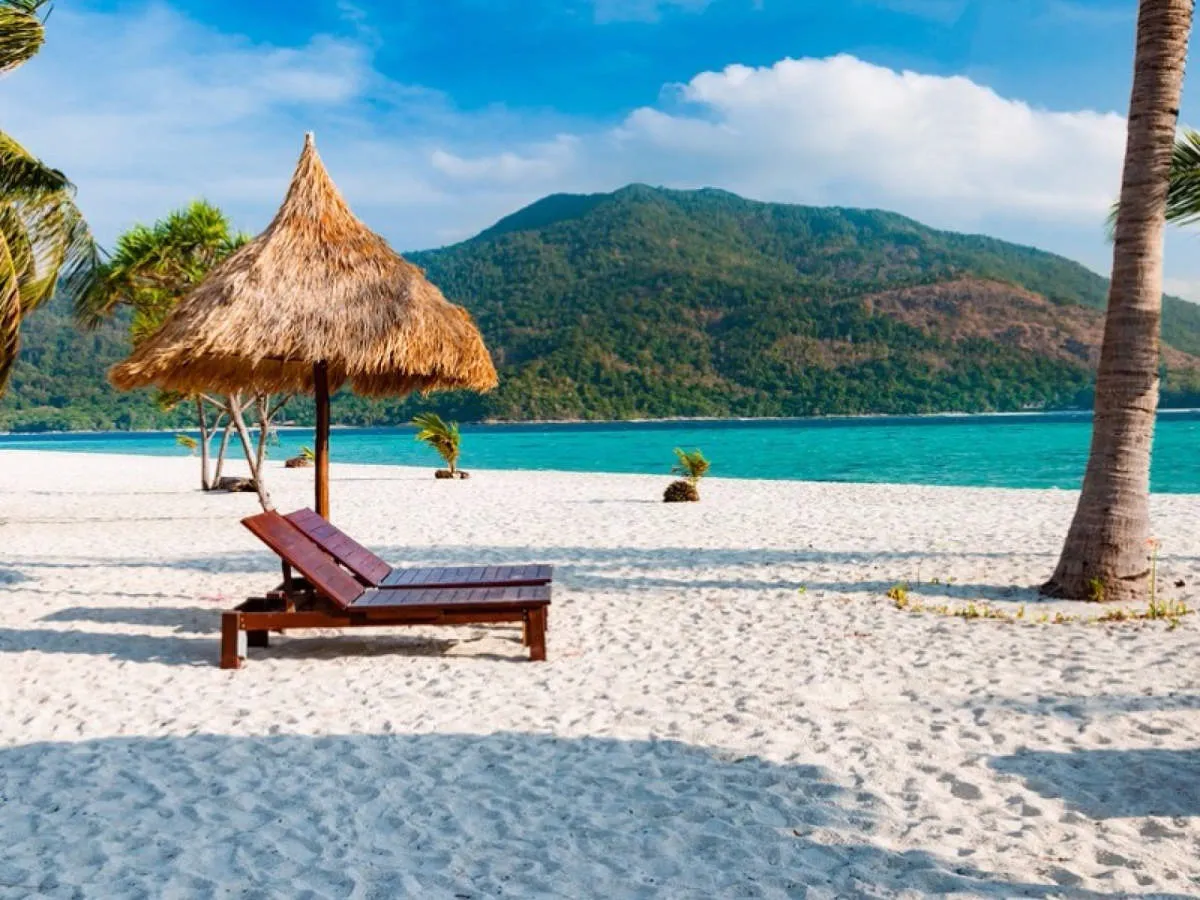
One of the biggest factors influencing your travel budget is your choice of destination. It’s no secret that some countries are notoriously expensive, while others offer incredible value for your money. Here’s how to pinpoint those budget-friendly gems:
Consider These Regions:
- Southeast Asia: Countries like Thailand, Vietnam, Laos, and Cambodia are famous for their affordability, delicious street food, and stunning natural beauty.
- Eastern Europe: Explore the rich history and culture of countries like Hungary, Czech Republic, Poland, and Romania without breaking the bank.
- Central America: Immerse yourself in vibrant cultures, relax on pristine beaches, and enjoy the delicious cuisine of countries like Nicaragua, Guatemala, and Honduras.
- South America: While some countries like Argentina and Chile can be pricey, others like Colombia, Peru, and Bolivia offer incredible value for budget travelers.
Travel Out of Season:
Consider traveling during the shoulder seasons (spring and fall) or even the off-season. You’ll often find lower prices on flights and accommodation, fewer crowds, and a more local experience.
Look for Free and Low-Cost Activities:
Many destinations offer an abundance of free or inexpensive activities. Explore local markets, visit parks and gardens, take advantage of free walking tours, and seek out free museum days.
Booking Cheap Flights
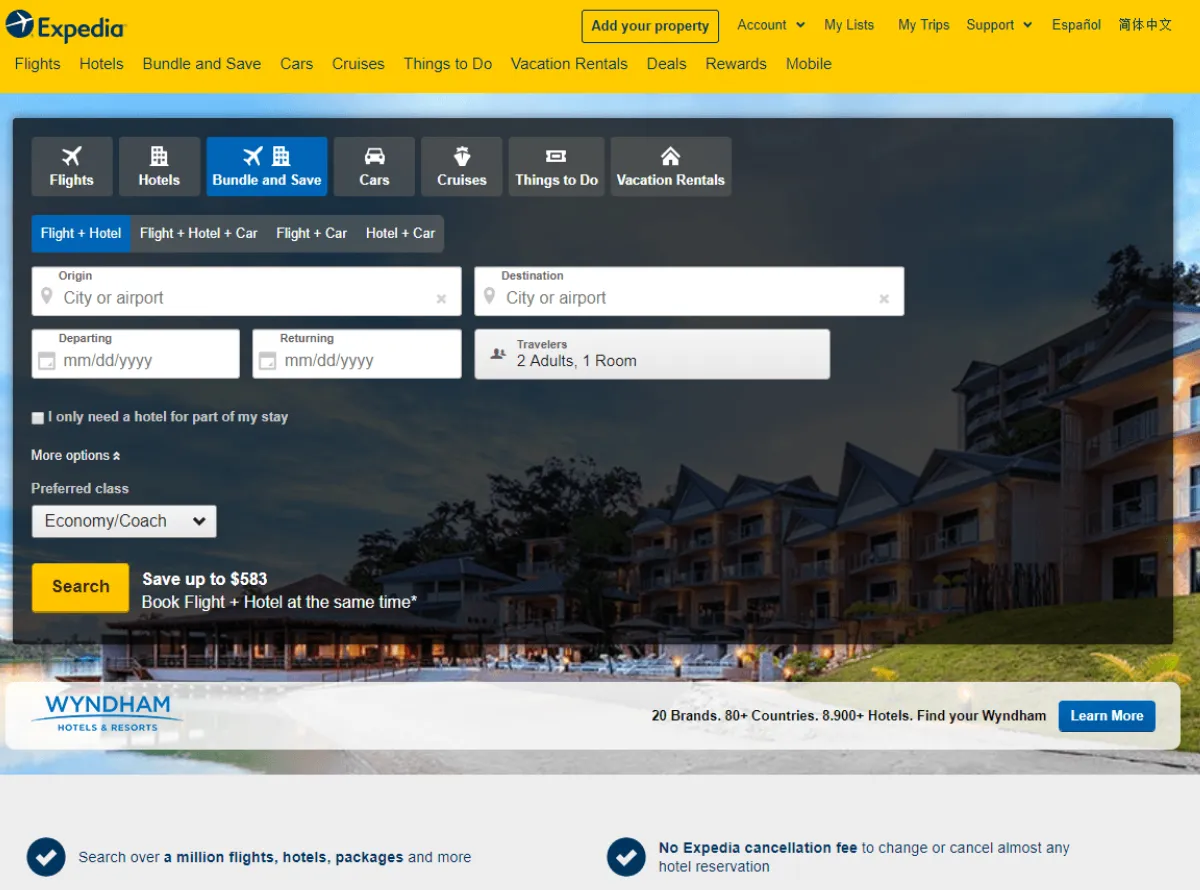
Finding affordable flights is often the most significant factor in slashing your travel expenses. Here’s how to track down the best deals:
Be Flexible with Your Dates and Destinations
If at all possible, stay flexible with your travel dates. Mid-week flights (Tuesdays, Wednesdays) and off-season travel often yield cheaper fares. Similarly, consider alternative airports near your desired location. Flying into a smaller airport might mean an extra hour’s drive but could result in substantial savings.
Utilize Flight Search Engines and Fare Comparison Sites
Take advantage of flight search engines like Kayak, Google Flights, Skyscanner, and Momondo. These platforms scour the internet for the best deals across multiple airlines. Make sure to compare prices across different sites as prices can vary.
Sign Up for Airline Newsletters and Price Alerts
Stay informed about flash sales and special offers by subscribing to airline newsletters and setting up price alerts for your desired routes. This way, you’ll be among the first to know about discounted fares.
Consider Budget Airlines
While they may come with additional fees for luggage or seat selection, budget airlines can offer significantly lower fares, especially for shorter flights. Just be sure to factor in any potential extra costs when comparing prices.
Book in Advance (But Not Too Far)
Contrary to popular belief, booking extremely far in advance doesn’t always guarantee the lowest price. Generally, booking flights 2-3 months in advance for domestic travel and 4-6 months in advance for international travel is a good rule of thumb.
Staying in Budget Accommodations
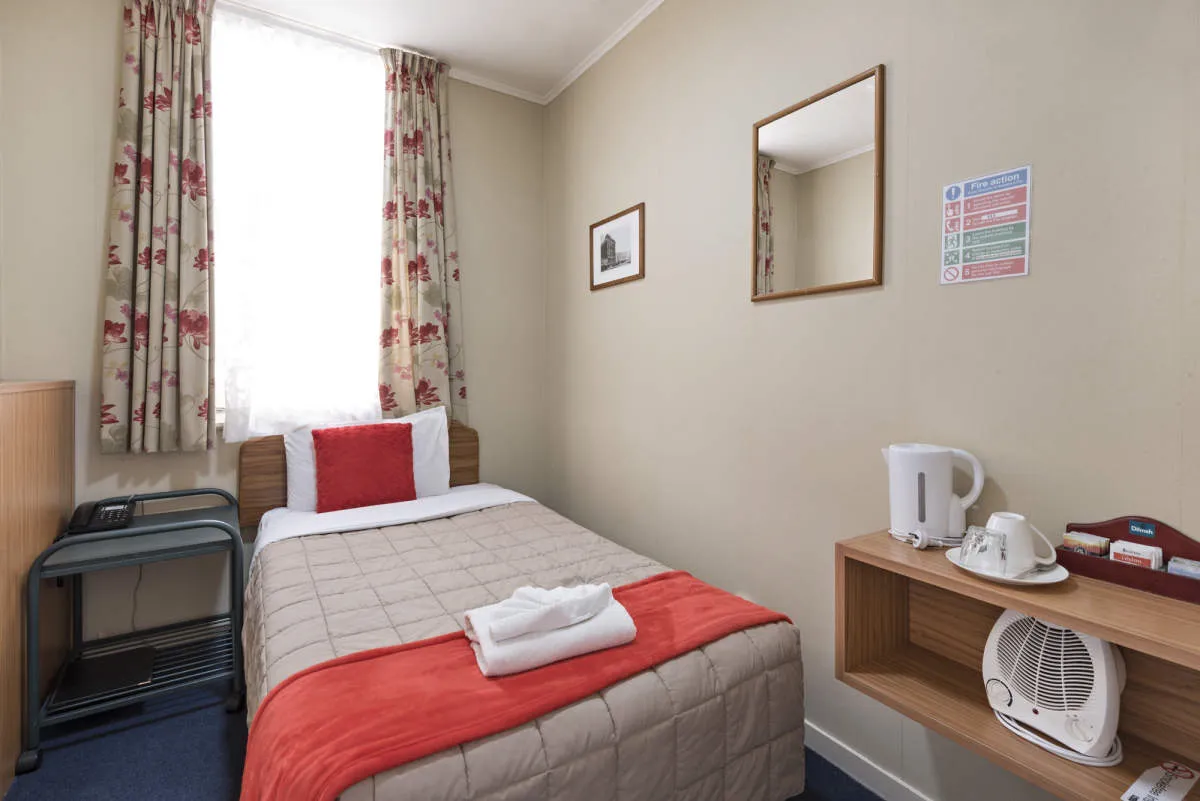
Finding affordable lodging is one of the most effective ways to stretch your travel budget. Here are some tips for finding budget-friendly accommodations:
Consider Alternatives to Hotels
- Hostels: Hostels offer dormitory-style rooms or private rooms at a fraction of the cost of hotels.
- Guesthouses and Pensions: These smaller establishments often offer more affordable rates than larger hotels.
- Home Sharing: Platforms like Airbnb and VRBO allow you to rent rooms or entire homes directly from locals, often at lower prices than traditional accommodations.
Be Flexible with Your Dates and Location
Traveling during the off-season or shoulder season can often result in significant savings on accommodation. Similarly, being open to staying slightly outside of the most popular tourist zones can yield more budget-friendly options.
Look for Deals and Discounts
- Travel booking websites: Websites like Booking.com, Expedia, and Kayak frequently offer deals and discounts on accommodations.
- Loyalty programs: Joining hotel loyalty programs can earn you points towards free nights or other perks.
- Direct bookings: Sometimes, booking directly through a hotel’s website can result in lower prices or special offers.
Think About What’s Important
Consider what amenities are most important to you. Are you willing to sacrifice a swimming pool or on-site restaurant for a lower price? Prioritizing your needs can help you narrow down your options and find a budget-friendly accommodation that still meets your basic requirements.
Using Public Transport
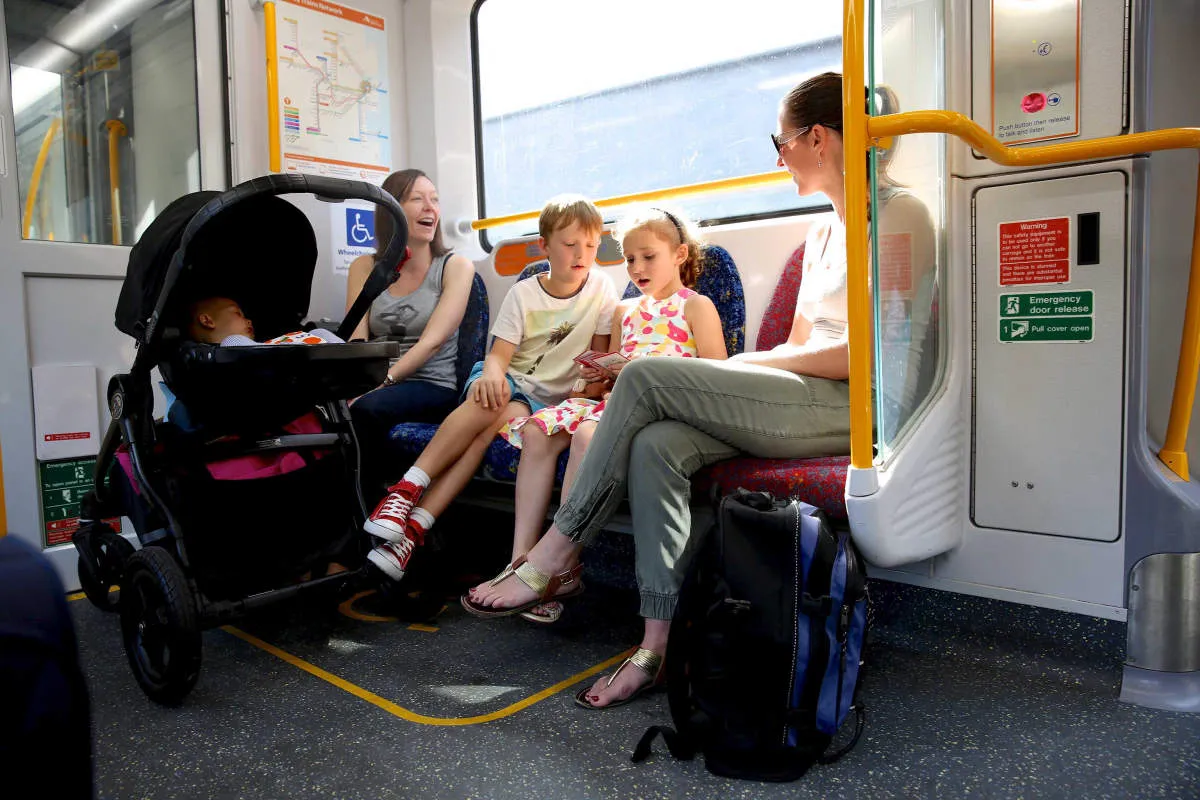
One of the biggest drains on your travel budget can be transportation. Hiring taxis or renting cars might seem convenient but costs can quickly spiral. A savvy traveler knows that opting for public transport is often the most effective way to slash expenses and free up more funds for memorable experiences.
Here’s how to maximize your budget by utilizing public transport:
- Research Before You Go: Familiarize yourself with the public transport system of your destination. Most cities and countries have comprehensive websites or apps detailing routes, schedules, and fares.
- Consider Travel Passes: If you plan to use public transport extensively, multi-day or weekly passes are almost always cheaper than individual tickets. Many cities offer tourist-specific cards that also include discounts at attractions.
- Utilize Free Options: Don’t overlook free options like walking or cycling, especially for shorter distances. This is not only budget-friendly but also a great way to discover hidden gems and get a feel for the local rhythm.
- Travel Off-Peak: If your itinerary allows, try traveling during off-peak hours. Fares are sometimes cheaper and you’ll avoid the rush hour crowds.
- Look for Airport Transfers: Public transport options from the airport are often significantly cheaper than taxis. Research dedicated airport buses or train lines that connect directly to the city center.
Eating on a Budget

Food is an integral part of the travel experience, allowing you to savor the flavors of different cultures. However, eating out for every meal can quickly drain your travel budget. Here are some tips to keep your stomach and your wallet happy:
1. Embrace the Local Cuisine
Seek out local eateries and street food stalls instead of expensive tourist traps. Not only will you experience authentic flavors, but you’ll also find more affordable options.
2. Cook Your Own Meals
If you have access to a kitchen (hostel or rental), take advantage of it! Visiting local markets and grocery stores can be a fun cultural experience and allows you to create your own delicious and affordable meals.
3. Pack Your Snacks
Carrying snacks like granola bars, nuts, or fruit can prevent impulsive purchases when hunger strikes between meals, especially during long days of sightseeing.
4. Eat Your Biggest Meal at Lunch
In many destinations, lunch specials offer better value for money than dinner menus. Enjoy a satisfying midday meal and opt for a lighter dinner or snacks later.
5. Drink Wisely
Drinks can significantly increase your restaurant bill. Opt for water, juice, or local tea instead of expensive sodas or alcoholic beverages.
6. Take Advantage of Free Breakfasts
If your accommodation offers free breakfast, make the most of it! Fuel up for the day and save money on an extra meal.
Using Travel Rewards Programs
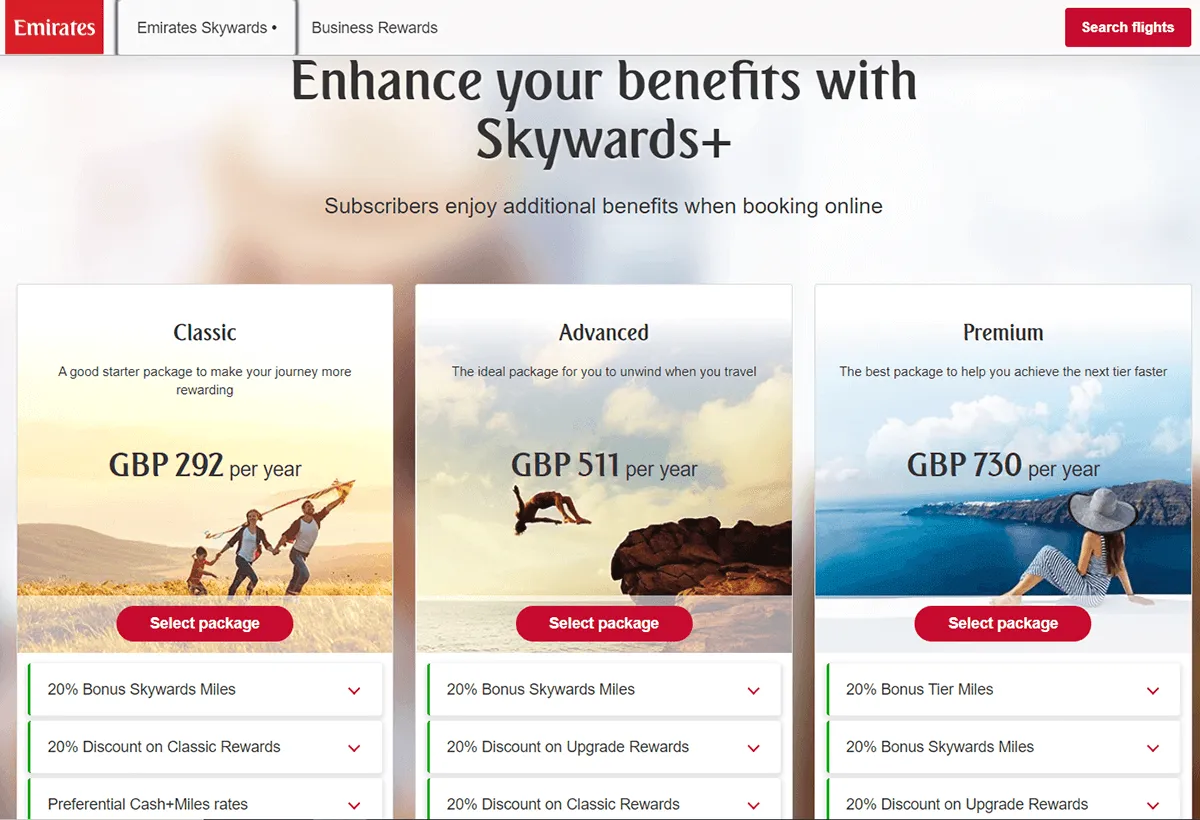
Travel rewards programs can be a powerful tool for stretching your travel budget. By strategically earning and redeeming points and miles, you can unlock significant savings on flights, hotels, and other travel expenses. Here’s how to maximize your travel rewards:
1. Choose the Right Programs
Not all travel rewards programs are created equal. Research and compare programs based on your travel habits and preferences. Consider factors such as:
- Earning potential: How many points or miles can you earn per dollar spent?
- Redemption options: What airlines, hotels, or other travel providers are partners?
- Bonus offers: Are there sign-up bonuses or ongoing promotions?
2. Maximize Your Earning
Once you’ve chosen your programs, focus on maximizing your points and miles accumulation. Here are some tips:
- Use rewards credit cards: Many travel rewards programs offer co-branded credit cards that provide bonus points or miles on travel-related spending.
- Shop through airline and hotel portals: Earn bonus points or miles by making purchases through online shopping portals affiliated with your travel rewards programs.
- Dine out with rewards programs: Join dining rewards programs that allow you to earn points or miles by dining at participating restaurants.
3. Redeem Strategically
Redeeming your points and miles wisely is key to maximizing their value. Consider these strategies:
- Look for high-value redemptions: Research different redemption options and compare the value of your points or miles for each.
- Travel during off-peak seasons: You’ll often find better availability and lower redemption rates for flights and hotels during less popular travel times.
- Transfer points or miles: Some programs allow you to transfer points or miles to partner programs, which can unlock better redemption opportunities.
Finding Free Activities
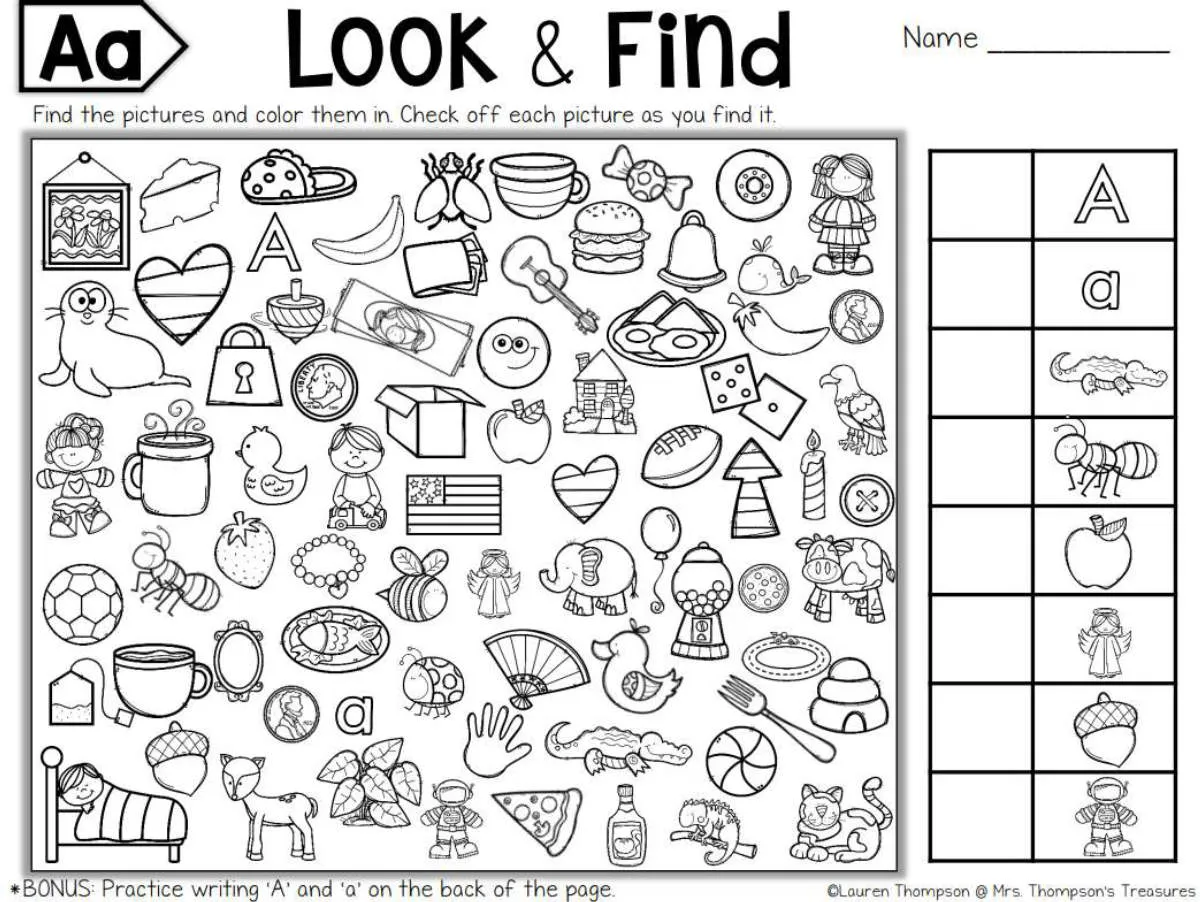
Sticking to a travel budget doesn’t mean missing out on incredible experiences. In fact, some of the most memorable adventures are completely free! Here’s how to uncover those hidden gems:
1. Embrace the Great Outdoors
Nature often provides the best (and most budget-friendly) playground:
- Hike or bike scenic trails: Many destinations boast breathtaking trails, from coastal paths to mountain climbs.
- Explore local parks and gardens: Pack a picnic and relax in the tranquil beauty of botanical gardens or urban parks.
- Hit the beach: Whether you’re swimming, sunbathing, or building sandcastles, a day at the beach is a classic free activity.
2. Immerse Yourself in Culture
Delve into the heart of your destination with these free cultural experiences:
- Visit free museums and galleries: Many museums offer free admission days or permanently free exhibitions.
- Attend local events: Check community calendars for free concerts, festivals, markets, and street performances.
- Take a self-guided walking tour: Map out historical landmarks or architectural highlights and explore at your own pace.
3. Seek Out Local Knowledge
Tap into the wisdom of locals to uncover hidden gems:
- Talk to your hotel staff: They often have great tips on free things to see and do in the area.
- Connect with other travelers: Online forums and social media groups can be great resources for finding free activities.
- Simply ask around! Don’t be shy to ask locals for their recommendations. You might be surprised by what you discover.
Traveling During Off-Peak Seasons
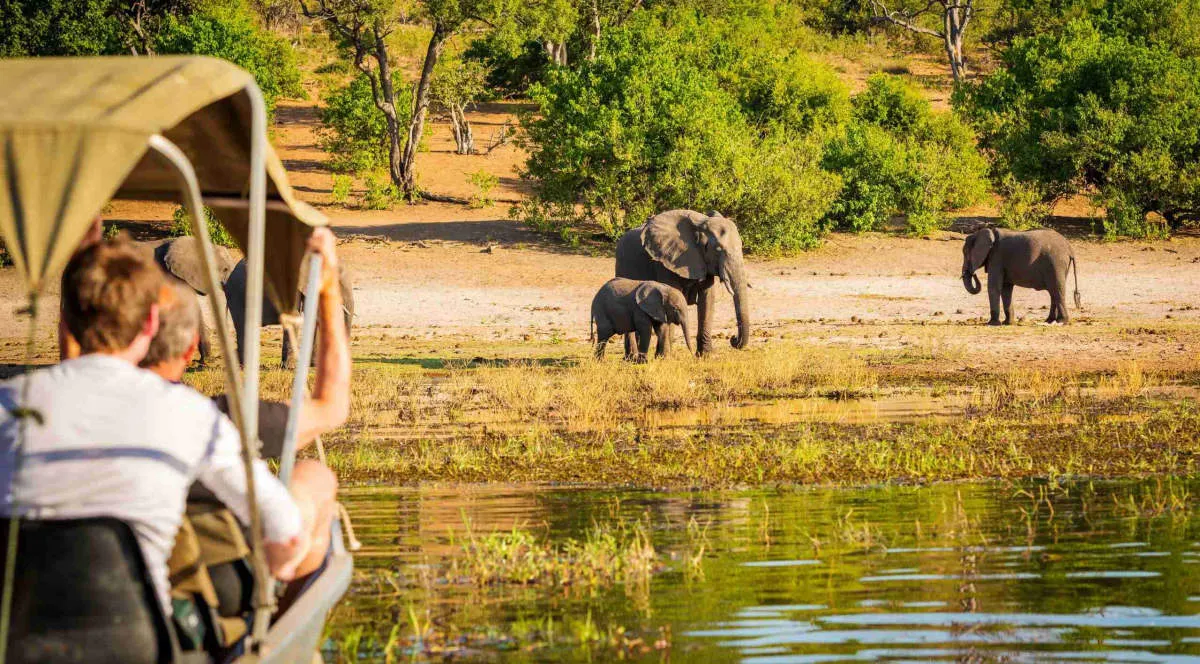
One of the most effective ways to stretch your travel budget is to venture out during the off-peak seasons. These shoulder periods, typically falling between the high and low seasons, offer a sweet spot for budget-conscious travelers. Here’s why:
Lower Prices
During off-peak seasons, you’ll find significantly lower prices on everything from flights and accommodation to tours and activities. With less demand, travel providers offer attractive discounts and deals to entice visitors.
Fewer Crowds
Imagine exploring popular attractions without battling hordes of tourists. Off-peak travel means shorter lines, more space to roam, and a more intimate experience overall.
Availability and Choice
Popular hotels, tours, and transportation options can book up quickly during peak season. Traveling off-peak gives you greater flexibility and choice, ensuring you secure your preferred dates and arrangements.
Pleasant Weather
While off-peak seasons may not coincide with the absolute best weather, you can often enjoy pleasant conditions without the extremes of summer heat or winter chills. Research the shoulder seasons for your destination to find the ideal balance.
Unique Experiences
Off-peak seasons can offer unique perspectives and local experiences. You might encounter special festivals, cultural events, or seasonal activities that aren’t available during peak times.
Traveling with Friends

Traveling with friends can be a fantastic way to cut costs and share incredible experiences. Here’s how to make the most of your travel budget when embarking on adventures with your crew:
Share Accommodation Costs
One of the biggest expenses on any trip is accommodation. By sharing rooms or renting apartments or houses together, you can significantly reduce costs per person. Sites like Airbnb and VRBO offer great options for group travel.
Cook Meals Together
Eating out for every meal can quickly drain your budget. Opt for grocery shopping and cooking meals together as a group. Not only is this more affordable, but it can also be a fun and social way to enjoy your destination.
Take Advantage of Group Discounts
Many attractions, tours, and transportation options offer discounted rates for groups. Be sure to inquire about group pricing when booking activities or purchasing tickets.
Split Transportation Costs
Whether you’re renting a car, taking taxis, or using ride-sharing services, splitting transportation costs amongst your group can make a big difference in your overall expenses.
Set a Budget and Track Spending
Before you embark on your trip, have an open conversation with your friends about budget expectations. Consider using a budgeting app or shared spreadsheet to track group expenses and ensure everyone stays on track.
Communicate Openly
Open and honest communication about finances is crucial when traveling with friends. Address any concerns or questions upfront to prevent misunderstandings or conflicts during your trip.
Conclusion
By planning ahead, choosing budget-friendly accommodations, utilizing local transportation, and embracing local cuisine, travelers can maximize their travel budget for a fulfilling and memorable experience.

